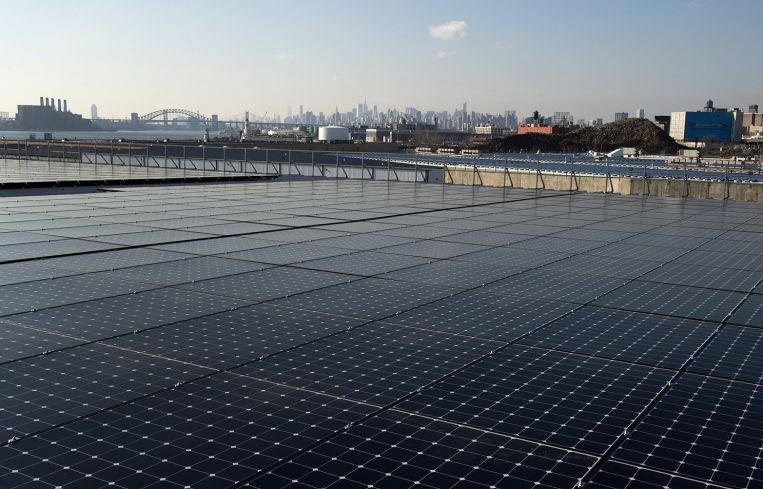Solar Can Help the Real Estate Industry Prepare for New ESG Disclosure Rules
By David Heyman June 1, 2022 2:56 pm
reprints
The Securities and Exchange Commission (SEC) has proposed rules that would require registrant companies to disclose a broader scope of climate-related risks and impacts.
Although environmental, social and corporate governance (ESG) initiatives are typically implemented by sustainability professionals, this new framework would require the C-suite to better understand the costs and payoffs of various approaches to reducing a company’s environmental impact.
ESG solutions can be complicated to implement, and results can be hard to quantify. This is one reason why “greenwashing” is prevalent in business and why the SEC is trying to combat it with stronger standardization. Under the proposed rules, SEC-registered companies would be obligated to disclose their Scope 1, Scope 2 and Scope 3 emissions. Studies find that only 32 percent of the commercial real estate industry currently reports Scope 1 and Scope 2 emissions. Meanwhile, only 14 percent of real estate companies report Scope 3 emissions, which constitute a substantial portion of a company’s total greenhouse gas emissions but are notoriously difficult to quantify and mitigate.

A company’s ability to quantify emission reductions is paramount to the development of ESG as a core competency and a source of competitive differentiation. When it comes to negotiating with procurement officers and corporate buyers who are placing premiums on ESG ratings, companies with sustainability programs have a distinct advantage over those that lack such programs.
For real estate companies looking to improve or implement ESG efforts, solar energy is a straightforward, immediate, visible and economically viable solution. Solar is a substantive decarbonization solution with real, measurable results. Switching to solar power immediately reduces reliance on fossil fuels and can offset up to 100 percent of a property’s electricity use. Plus, solar projects are relatively easy to implement and do not require behavioral changes within an organization. Solar is now the cheapest way in history to build new electricity generation, making it a cost-effective way to execute ESG initiatives.
Solar provides an array of financial and operational benefits for companies of all sizes, especially in states with renewable-energy incentives or climate goals. Companies can also claim 26 percent of solar project costs against federal income taxes through the federal solar investment tax credit (ITC).
Further, utility rates tend to fluctuate and rise. By investing in solar, companies can lock in low, predictable electricity rates for decades, leading to sizable operational savings. Solar paired with battery storage can also reduce downtime from outages, which are more frequent due to extreme weather. Additionally, solar can increase property values without altering a building’s structure.
Fortunately, it has never been easier to invest in solar. Over the last several years, a variety of increasingly sophisticated financing structures have been developed to cater to virtually any business objective. Companies can determine which one fits their needs best by analyzing their tax appetite, access to capital and credit rating.
If a company has a moderate to large tax appetite, it will want to consider a cash purchase, bank loan, property-assessed clean energy (PACE) loan, or a structured solution with a specialty finance company. In each case, the company owns the solar system and is able to redeem the associated tax benefits.
For companies that do not have a tax appetite, but have good credit or can have an investment-grade entity provide a guarantee, opting for an operating lease or a power purchase agreement (PPA) are great alternatives. With these financing structures, a third-party developer owns the system on the company’s property and sells the energy back to it at a discount compared to utility rates.
Accounting for 21 percent of global greenhouse gas emissions, the commercial real estate industry must play an active role in addressing climate change while maintaining its status as a safe and lucrative asset class. Alongside the SEC’s proposed changes, many states have already passed legislation requiring new buildings to be built “solar-ready,” indicating that the trend toward decarbonization is here to stay. Adopting solar energy is one of the easiest and most meaningful steps a company can take to reduce emissions while increasing competitiveness with prudent investors in this new financial landscape.
David Heyman is the CEO of safari energy, a solar developer.



